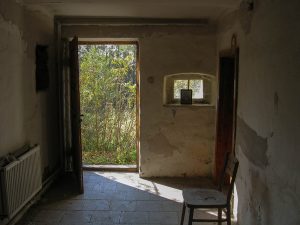| Contribute a translation | Source (English) |
|---|---|
I am here, O Lord, with a bruised conscience for I have dared to pray for help and relief before I tried to rescue myself from my predicament. | |
How is it that I dare to offer prayers to Thee to open Thy heart to me, when I have closed my heart to others? Why do I dare to ask Thee to topple the walls that stand between Thee and me, when I myself erected most of the walls? | |
Inspire me, I pray, O Lord, to turn so that I may offer to those about me the generosity of spirit and warmth of sentiment I would ask for myself. If only I who yearn for kinship, for fraternity, for understanding, for respect, for love, would learn to give these outpourings of the heart to my fellows! Understanding for those whose way is hard in the world; kinship with all who are Thy children, whether my brethren of the household of Israel or any fellow human being; respect for even the slightest of Thy creatures; and love for Thy Godhead which flickers and flames within us all.[1] Possibly a reference to the tselem elohim — the divine likeness in Genesis 1:26-27. The scholar Rabbi Louis Jacobs (1920-2006), on the history of the popular belief in innate divine sparks within all of us: “The belief that there is a special mystical ‘spark’ in every human breast can be traced back, in western mysticism, at least to Jerome in the fourth century. Both Bonaventura and Bernard of Clairvaux speak of this mystical organ; the latter, calling it scintillula, a small spark of the soul, and speaking of the nearness of God, said: ‘Angels and archangels are within us, but He is more truly our own who is not only with us but in us.’ However, both these mystics are anxious to prevent an identification of this mystical spark with the divine. Eckhart, on the other hand, embraces the identification, calling the spark, among other endearing names, das Kleidhaus Gottes, ‘the house in which God attires Himself ’. This and other pantheistic tendencies in Eckhart’s thought were condemned in the papal Bull of 1529…” (in “The Doctrine of the ‘Divine Spark’ in Man in Jewish Sources” Studies in Rationalism, Judaism and Universalism, ed. Raphael Loewe (Humanities: 1966) 87-114.) Belief in this innate divine spark in each person is important in the theology of George Fox (1624-1691) and presents an important point of connection underscoring social justice movements among both Jews and Friends (i.e., Quakers). | |
Teach me, O Lord, to come closer to my neighbor; to reach out in welcome; to open my heart and my mind to all about me. May I bring comfort to those in need, brotherhood to the lonely and kindness to all men. Not to complain, but to help; not to retreat into myself, but to welcome others; not to pray in word alone, but to act my prayer in my life. | |
This is my prayer to Thee, O Lord; that I become a being worthy of prayer. Then will my life be a hymn of worship unto Thee. | |
Amen. |
“The Open Door of the Heart” by Rabbi Morrison David Bial was first published in his anthology, An Offering of Prayer (1962), pp. 43-44, from where this prayer was transcribed.
Source(s)

Notes
| 1 | Possibly a reference to the tselem elohim — the divine likeness in Genesis 1:26-27. The scholar Rabbi Louis Jacobs (1920-2006), on the history of the popular belief in innate divine sparks within all of us: “The belief that there is a special mystical ‘spark’ in every human breast can be traced back, in western mysticism, at least to Jerome in the fourth century. Both Bonaventura and Bernard of Clairvaux speak of this mystical organ; the latter, calling it scintillula, a small spark of the soul, and speaking of the nearness of God, said: ‘Angels and archangels are within us, but He is more truly our own who is not only with us but in us.’ However, both these mystics are anxious to prevent an identification of this mystical spark with the divine. Eckhart, on the other hand, embraces the identification, calling the spark, among other endearing names, das Kleidhaus Gottes, ‘the house in which God attires Himself ’. This and other pantheistic tendencies in Eckhart’s thought were condemned in the papal Bull of 1529…” (in “The Doctrine of the ‘Divine Spark’ in Man in Jewish Sources” Studies in Rationalism, Judaism and Universalism, ed. Raphael Loewe (Humanities: 1966) 87-114.) Belief in this innate divine spark in each person is important in the theology of George Fox (1624-1691) and presents an important point of connection underscoring social justice movements among both Jews and Friends (i.e., Quakers). |
|---|

“The Open Door of the Heart, a prayer by Rabbi Morrison David Bial (1962)” is shared through the Open Siddur Project with a Creative Commons Public Domain Dedication 1.0 Universal license.










Leave a Reply